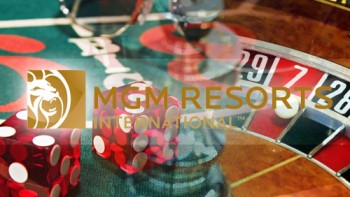 MGM Resorts International has paid the required $85 million casino license fee for its $800 million Springfield resort casino on Monday, state gambling regulators announced.
MGM Resorts International has paid the required $85 million casino license fee for its $800 million Springfield resort casino on Monday, state gambling regulators announced.
The Las Vegas-based company made the payment for its 15-year license electronically through the limited liability company Blue Tarp reDevelopment. MGM won the western region’s only resort casino license over the summer but the license payment did not come due until after the voters rejected casino repeal earlier this month.
MGM’s total payment of $195 million will be forwarded to the state comptroller’s office then will distributed to a range of public funds such as health care payment reform fund (23%); community colleges fund (17%); transportation infrastructure (14.5%); manufacturing (13%) and community mitigation (10%).
Wynn Resorts’ $1.6 billion casino in Everett paid its $85 million fee earlier this month and Penn National Gaming has also paid a $25 million slots-parlor license fee for its $225 million expansion of Plainridge, the harness racing track in Plainville.
Malloy Doesn’t See Connecticut Expanding Gambling
Last week, the Mohegan tribe spoke of their interest in expanding gambling in the state to control the flow of Connecticut customers to a new $800 million MGM Springfield casino expected to open in 2017.
Connecticut’s tax revenue from casinos has decreased in recent years as gambling opportunities expand in other states—Massachusetts and New York will have new casinos in the next few years and new gaming facilities in Rhode Island.
But during the Connecticut Alliance of the City Police’s first ever Police Union Convention held at the Hartford Marriott Downtown on Monday, Gov. Dannel P. Malloy asserted that his administration is not playing “a lead role nor a direct role” in any legislation to expand gaming to contain a slots parlor near I-91 between Hartford and Springfield, calling the issue as a “legislative matter and does not have a support in the state.”
“It’s not something I’ve been actively thinking about or pursuing… I don’t see Connecticut doing it but you know, that’s a legislative matter at least initially,” Gov. Malloy said.
“I don’t think that there is a consensus in Connecticut that people want a lot more gaming, vis a vis, keno, which is played in each one state around us yet isn’t played in Connecticut,” he added.
Keno, a lottery-like gambling game, played at casinos and through state lotteries was approved in 2013 yet the games never happened as opposition grew among the people and Republicans.